Review of Passage to India, A
Introduction
At the moment, Bollywood and Indian culture is surfing a wave of popularity in the West. Films like the Guru and programmes like The Kumars At No. 42 are just a couple of examples of how East meets West in new and exciting ways. Or are they? In fact, ever since Sabu first went to Hollywood, a fascination with Indian culture has waxed and waned with almost cyclical regularity. The current vogue for Indian entertainment is perhaps a little healthier than before, with more of a tendency to embrace Indian culture wholeheartedly, rather than earlier attempts to pick and choose. The early eighties saw a period of fascination with India that was limited only to a nostalgic interest in the British Raj. This was typified with the Oscar winning Gandhi or the Jewel In The Crown television series. This was memorably sent up in the Lenny Henry sketch, A Jewel In India`s Passage, which neatly brings me to the point of this review, David Lean`s adaptation of E.M Forster`s novel, A Passage To India.
Adela Quested is a young woman voyaging for the first time outside of her native land. Accompanying Mrs Moore, she harbours vague dreams of adventure and romance in an exotic land, but when she finally arrives in India in the waning days of the Raj, she finds a cliquish British society of bureaucrats loathe to come into contact with the citizens they govern and who remain aloof in their little corner of England abroad. Both she and Mrs Moore are horrified at how the ruling class treat the people they are supposed to govern and they attempt to find the true India for themselves. It`s when they encounter the local Doctor Aziz that they find someone amenable to show them the real India. Aziz offers to take them on a grand adventure of the Marabar Caves, a natural curiosity famous for it`s echoes. It is there that catastrophe falls as Aziz and Adela are exploring caves at the summit. When a bruised and battered Adela is found, panicked and disoriented at the foot of the summit, the British contingent jumps to a horrific conclusion. When the rest of the party return to Chandrapore, Dr Aziz is arrested and charged with attempted rape. Simmering tensions threaten to explode as the two cultures collide and Aziz is tried in court.
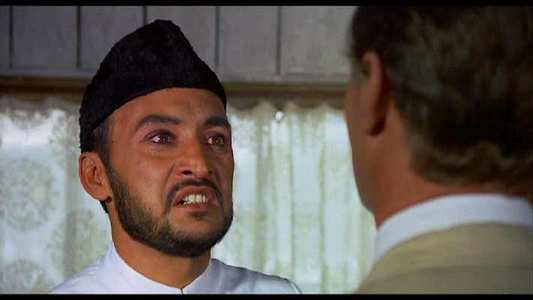
Video
A Passage To India is presented in a 1.85:1 anamorphic transfer. The transfer is quite good with a nice, clear picture if a tad grainy at times. There is minor print damage, understandable in a 1984 film, but what is evident from the first frame is David Lean`s amazing direction and vivid imagery. The magnificent and expansive vistas are powerfully portrayed in this film from the arid majesty of the Marabar caves to the beautiful idyll of Kashmir. Every frame is exquisite in this film and the story is made powerful by the splendour and chaos of India as it is portrayed here. I`m quite frankly surprised that the film was originally shot in this ratio and would have expected an epic widescreen image of the likes of Lawrence of Arabia.
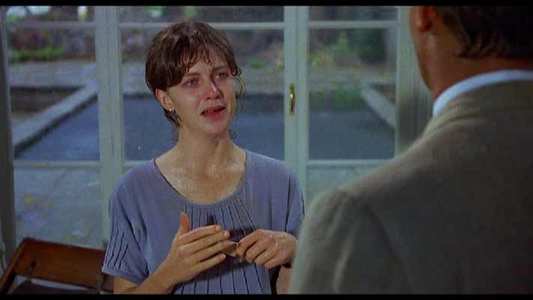
Audio
A DD 5.1 English track is joined by soundtracks in DD 2.0 French and Spanish. The surround remix is fairly mundane, with sparse use of the surrounds for atmosphere and ambience. On occasion the dialogue can be a little muffled, especially during hectic crowd scenes. However the surrounds are vividly brought to life during the echoing Marabar caves scene and that alone justifies the 5.1 remix. Maurice Jarre`s music is individual and evocative of the period.
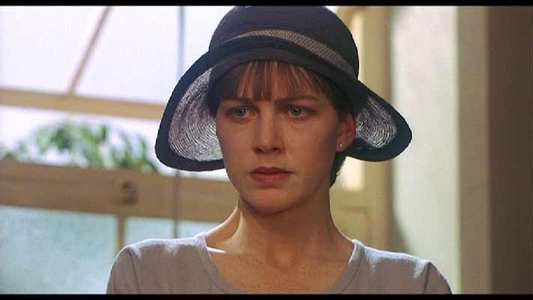
Features
A laughably bad trailer as well as multi language subtitles.
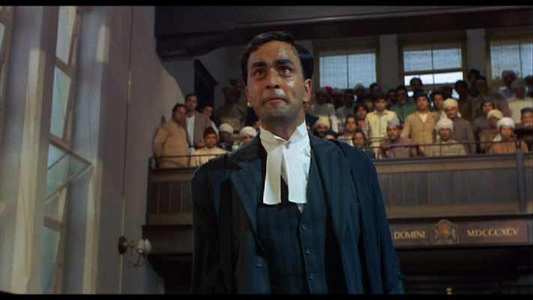
Conclusion
I was captivated by A Passage To India the first time I saw it at school and have enjoyed it ever since. However my affection is not without misgivings. The story is a rich, lush period piece set during the nascent independence movement in India. The Colonial era is drawing to a close and the strains are beginning to show. David Lean`s powerful imagery aside, the story is told carefully, almost languidly over the course of 2½ hours. The coda itself takes up 20 minutes after the climax of the drama. This slow, deliberate pace allows the audience to become enraptured in David Lean`s vision of 1920`s India.
The cast is uniformly excellent, with an amazing performance from Judy Davis as Adela Quested. She brings to life this rather whimsical character, so enraptured with the idea of adventure and romance, a woman motivated by her fantasies yet repressed by her upbringing. Naturally she is affected by the exotic world that she finds. The British contingent are uniformly shown as bigots in their own little annexe of India, with some rather one dimensional portrayals from Richard Wilson, Clive Swift and of course Nigel Havers, who elicits the disapproval of his mother Mrs Moore as played brilliantly by Peggy Ashcroft. Also bridging the gap between cultures is Richard Fielding as played by James Fox, who befriends Aziz and champions his cause, much to the dismay of his British compatriots. Victor Banerjee plays Dr Aziz with much exuberance and zest, exemplifying the hospitality that Indians were once renowned for, long ago.
And finally there is Alec Guinness as Professor Godbole. I was going to go off on a rant about white actors blacking up to play foreign characters when I realised that being British born and bred hardly makes me competent to comment on the accuracy of his portrayal. I went to someone with far greater experience and more perceptive on the cultural nuances that inform an accurate portrayal of an Indian character, I asked my Dad. My Dad absolutely loves the character of Godbole, he reliably informs me that Alec Guinness got the character of a Brahmin scholar spot on, to the last detail. The eccentricities he portrayed are true to life as is his propensity to wax rhapsodically about philosophy. Who am I to argue with that?
My misgivings then, I have on occasion heard A Passage To India described as a true representation of India, indeed when I saw it at school it was during a history lesson. But in the end it is period drama, if very well done. The British in India are portrayed as bigoted bureaucrats, obnoxious but ultimately harmless, they are shown to treat the Indians with disdain and even contempt, and this is shown in such a way to elicit negative feelings in the audience, yet without any hint of irony the Indian middle classes order their own servants around with impunity. In fact, A Passage To India is a rich fantasy of a story, a view of the British Raj through rose tinted glasses, tinged heavily with a heady nostalgia. Likewise the Indian society shown here is stylised and idealised, one that never really existed. I guess I just feel that this film should come with a reality warning, before more gullible tourists jet off in search of the `real` India.
I was also a little unhappy with the ending, after the positive climax of the story, and the fireworks and celebration, the last lingering image is that of a wistful Adela gazing forlornly out of a rain-drenched window. Not exactly an inspiring image to finish on.
Nevertheless, I enjoy A Passage To India every time I see it. It`s the kind of movie that is rarely made today. Indian Cinema can never approach historical stories or period dramas in the way that David Lean and Richard Attenborough did. Bollywood tells stories based around archetypes and legendary imagery, it rarely handles complex characters and gentle storylines like this. Likewise Hollywood is too enamoured of rewriting history to suit its purposes to be able to tackle Indian history satisfyingly. No, it was British Cinema that was the impetus behind A Passage To India and Gandhi and it is a shame that the budgets are no longer there to warrant similar projects. India has a rich vein of history and stories that still remain to be tapped.
A Passage To India is a rich and lush story told masterfully by David Lean. The disc is pitifully light on extras and this film deserves special edition treatment. Until that day, you will have to be satisfied with this adequate disc.
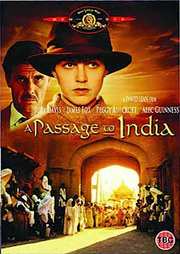




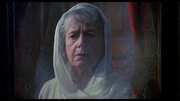
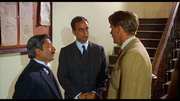
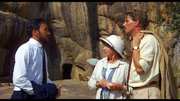


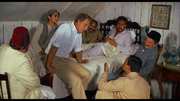


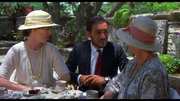


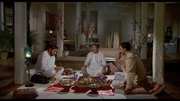


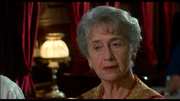
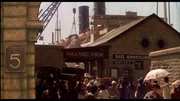
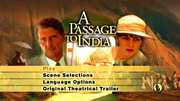
































Your Opinions and Comments
Be the first to post a comment!